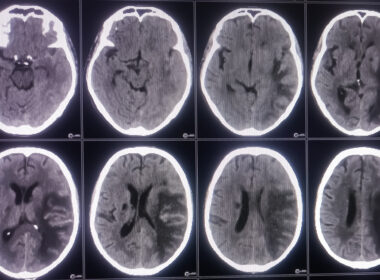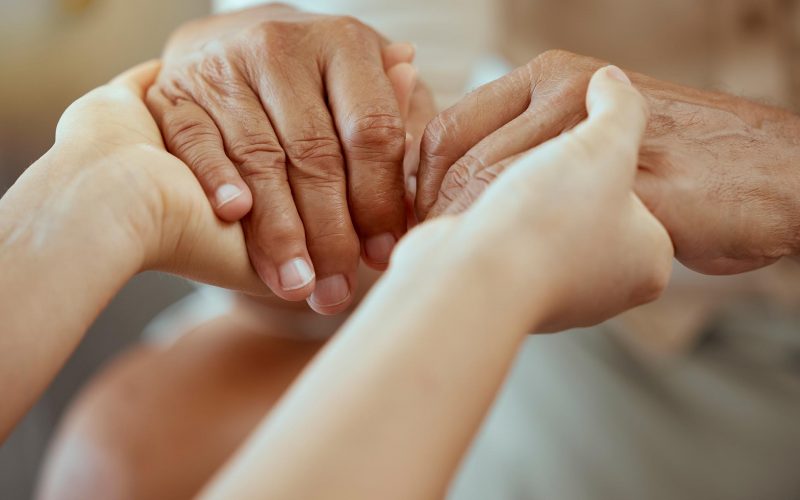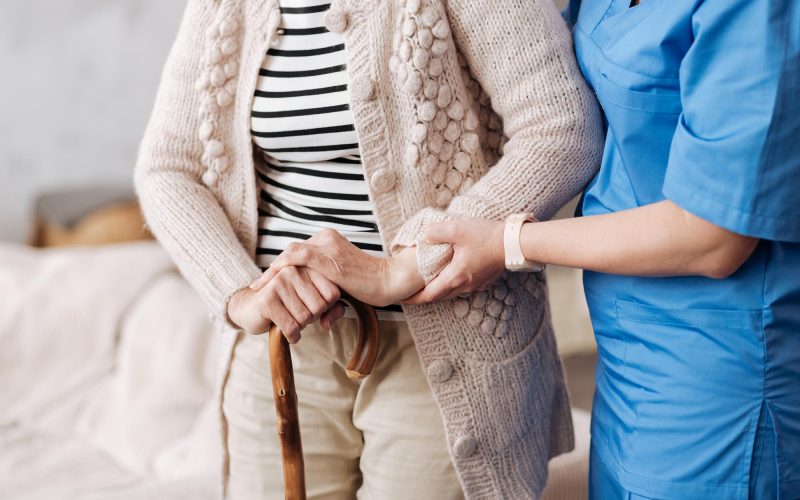When deciding how to handle the challenges of aging, ensuring that your loved ones receive quality care at an assisted living facility is important. Nursing home abuse is when care providers abuse and hurt residents in long-term care homes. Poor care and abuse in nursing homes can occur intentionally or accidentally.
Nursing Home Neglect Reporting
Nursing home abuse statistics have shown an increase in elder abuse since the Covid 19 pandemic. Doing due diligence such as researching how to report nursing home neglect if it occurs is therefore pivotal.
This article delves into the process of reporting nursing home abuse, and will educate you as to how to assist your loved ones find comfort and safety in long term care facilities.
What is the most common abuse in nursing homes?
Emotional abuse is the most common type of elder abuse, according to data from the World Health organization (WHO). WHO found that one out of three of nursing home residents or their families reported cases of emotional abuse.
The 7 types of Elder Abuse
The National Center on Elder Abuse asserts that nursing home abuse cases may be under the following following 7 categories :
- Financial abuse : this is when abuse occurs through material exploitation, illegal or improper use of an elder’s funds, property, or assets.
- Sexual abuse: Non-consensual sexual contact of any kind with an elderly person. Nursing home residents are especially vulnerable to sexual assault because health issues which make them dependent on care providers. Additionally, some nursing home residents within the community living setup may have histories of sexual assault.
- Physical Abuse: Use of physical force that may result in bodily injury, physical pain, or impairment.
- Neglect: refusal of or failure to carry out any responsibilities owed to an elderly person. Bruises of fall victims, bedsores or poor hygiene at the hands of negligent care providers are the most obvious signs of elder mistreatment, abuse or neglect.
- Abandonment: abandonment of an elderly person by someone with physical custody of the senior or someone who has taken on the role of providing care for the elder.
- Self-neglect: actions taken by an elderly person that put their health or safety in danger.
- Emotional abuse: causing distress, agony, or misery by verbal or non verbal cues, inflicted on an older person / elderly.
How to report abuse in nursing homes
According to 2022 elder abuse statistics by the World Health Organisation, “Rates of abuse of older people are high in institutions such as nursing homes and long-term care living facilities, with 2 in 3 staff reporting that they have committed abuse in the past year.” Taking immediate action in reporting nursing home abuse as soon as you can is therefore advised.
Thankfully, there are numerous ways for family members to report suspected abuse and neglect.
Talk to the staff if there are issues at the nursing facilities where your loved ones reside. For instance, report elder abuse with a nurse or Certified Nurse Assistant if you are having issues with your care (CNA). If the issue is still present, request a consultation with one of these:
- The Nursing Director
- The elderly care facilities aid worker
- The administrator
- Your physician
- A social worker
There must be a reporting abuse grievance process in place at the facility. You should follow the grievance procedure if you report negligence but it is not resolved. You could also want to speak with the resident or family council about the issue.
Where to report nursing home neglect
You can report nursing home abuse to proper authorities such as the police, medical professionals, elder advocacy groups and home health agencies that offer health and human services assistance and even lawyers. The following state organisations’ names, addresses, and phone numbers must be posted by these branches :
- State Licensing Office State Survey Agency
- Medicaid Fraud Control Unit State Ombudsman
- Program Protection and Advocacy Network
Local Authorities
Calling the police in the event that a senior is in danger or facing recurring nursing home abuse and visible physical abuse signs such as bruises is arguably the most crucial and effective technique to report nursing home abuse. The issue is dealt with right away by the police.
This is significant for two reasons: First of all, it enables emergency personnel to provide care to a suspected abuse victim immediately. Second, it alerts adult protective services to nursing homes and long term care facilities that may not be doing enough to protect senior citizens.
Doctors and Medical Experts
Professional medical advice should be given by doctors and other medical professionals. At a health care facility, they may be able to provide health services like identifying whether an injury suffered by a resident of a nursing home was from abuse or an accident.
For instance, a Bucharest resident of a nursing home in 2020 had serious cuts following a two-month stay there. The individual, according to nursing home employees, scratched herself with a brush. After examining the individual, doctors concluded that the report by employees was false. The elderly had actually experienced nursing home abuse. Steps against the facility’s negligence were taken.
Nursing Home Ombudsman
Having a conversation with a long-term care ombudsman is another option for reporting nursing home abuse.
Ombudsmen defend the rights of nursing home patients. They also attempt to settle issues that elderly patients may have with a facility, staff members, or other caregivers.
Elder Abuse Attorneys
Top law firms have lawyers that are knowledgeable on reporting nursing home abuse through legal action.
With the legal help of a lawyer, you may approach the U.S. Government Accountability Office. It offers auditing, evaluation, and will also investigate reports on abuse. It also serves as the federal government of the United States’ top auditing organization.
Additionally, various law firms also offer a free case review on the potential elder abuse claims. They accomplish this through personal injury lawyers, who provide knowledge of the advantages and disadvantages of your potential abuse and injury lawsuit.
The analysis to decide if there are sufficient grounds to pursue further action in the case is provided by this initial free legal case review with an attorney.
They also provide insight into the strength of your potential abuse claim and may talk about techniques they might take to advocate for your loved one in court if it is determined that the case has merit. Long-term care facilities are able to provide financial compensation so you can cover your medical costs and other expenses.
National Center on Elder Abuse (NCEA)
The NCEA links seniors to services that can assist them in the event of nursing home abuse. While the NCEA does not look into allegations of elder abuse, it does provide services and advice to elders who have suffered damage.
The NCEA also carries out its own research through a abuse coordinator nursing home facility expert who investigates elder abuse at care facilities and strives to raise awareness of the problem. Visit the NCEA’s official website to find out more.
Adult Protective Services (APS)
When reporting nursing home abuse, it is advised to get in touch with your local organizations if there isn’t an emergency. You may, for instance, get in touch with the Adult Protective Services (APS) division, or similar organization in your nation.
The APS looks into alleged elder abuse instances and seeks resolutions.
Eldercare Locator
Families can use the Eldercare Locator to identify senior advocacy resources in their neighborhood by entering a ZIP code. Additionally, it offers information about housing, insurance, and transportation that have proven safe against elder abuse.
Investigating Nursing Home Abuse and Neglect in Illinois.
The Illinois Department of Public Health (IDPH) is a national institute that is able to license nursing homes in the state. Therefore, if a complaint is made against one of its licensed facilities, IDPH can investigate and, if appropriate, take appropriate action.
In the first instance, the IDPH is required to launch an investigation within:
- 24 hours if the complaint indicates the resident faces immediate danger
- 7 days if the complaint claims abuse or neglect
- 30 days for all other complaints.
This investigation will likely require an on-site inspection that involves the following:
- Interviews with your loved one, other residents, and nursing home staff members.
- Inspections of the facility and its occupants by the inspectors, including your loved one’s physical reports
- Review of the facility’s records.
How Discreet is My Report?
Fortunately, reporting nursing home abuse is frequently anonymous. Verify that your report will remain private by asking the person or organization you are filing with whether they practice confidential reporting.
Potential Symptoms Your Loved One Has Been Hurt
Common indications of elder abuse in nursing homes include:
- negative changes in the resident’s emotions or conduct
- bedsores
- Broken bones, burns, scratches, or cuts
- bruising around the genitals
- undiagnosed ailments or infections
Although all allegations of nursing home abuse are considered seriously, details and evidence can lead to next steps much quicker.
Nursing Home Abuse Reporting Requirements
In several places, family members and persons who assist the elderly are required to report suspected nursing home abuse. It is also mandatory that personnel in facilities that receive monetary support in federal funding should report any potential cases of elder abuse or neglect.
If reporting rules have any bearing on your case, a nursing home abuse attorney can explain it to you. Reporting nursing home abuse as soon as you suspect abuse can will help ensure that your elderly loved one receives the care they require for overall healthy well being .
Steps to Take After Reporting Nursing Home Abuse
There are a number of ways to keep a patient safe when you report nursing home abuse, according to the National Consumer Voice for Quality Long-Term Care.
These comprise providing the resident who experienced elder abuse with the necessary care and assistance so they may heal, keeping in touch with individuals who are looking into the elder abuse, and requesting copies of the investigation’s results if legally allowed.












